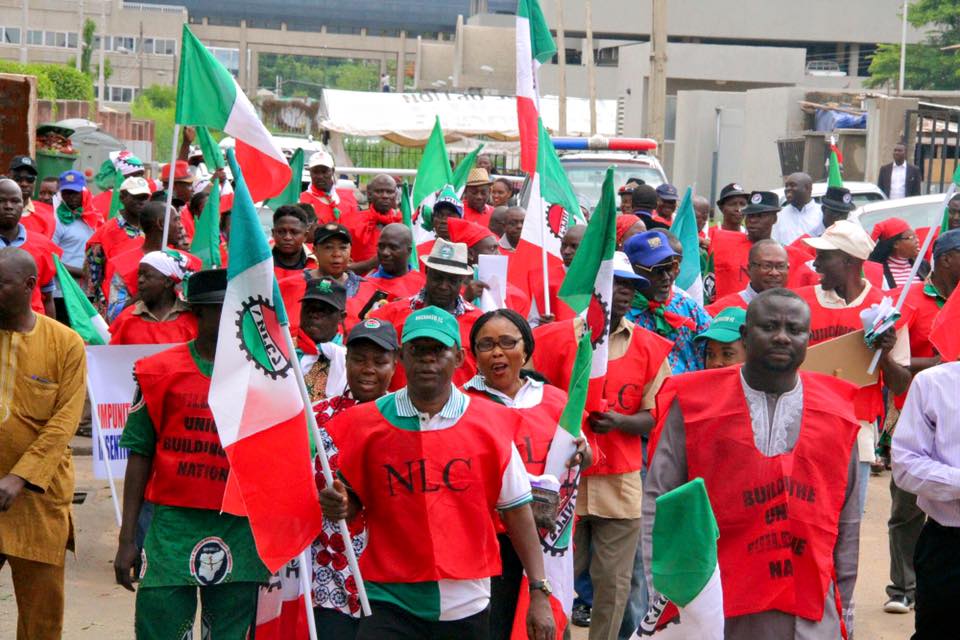In 19th-century America, when workers in Chicago were demanding an 8-hour workday, little could they have predicted that organized protest on May 1, 1886, would transcend the borders of Uncle Sam and strike a chord with workers in over 80 countries, including Cuba and China.
Since 1889, International Labour Day—or Workers’ Day—has been a global movement to honor the achievements of labor unions around the world. It’s equally served as a rallying cry for better working conditions and adequate pay, a haunting reminder of the day’s origins.
Solidarity marches and speeches have typically characterized the day since it was recognized in Nigeria on May 1, 1981. Yet beneath all of that facade of comradeship has been an earnest call for government action towards the workers’ plights.
In recent years, these plights of the civil servant have become even harsher in Africa’s most populous country, where the minimum wage remains a bone of contention between the country’s labor unions and the government. Ill-timed government policies have triggered a spike in the cost of petroleum, electricity and food, amid a current minimum wage of N30,000. With inflation estimated at 33.2%, workers continue to bemoan the economic hardship afflicting their livelihoods.
More unfortunate is the government’s apparent indifference to the workers’ miseries. The minimum wage debate rages on, with long-drawn-out negotiations between labour unions and the government. quashing any hope for the Nigerian civil servant.
The government has promised several measures to alleviate the plights of the workers, such as high-capacity compressed natural gas (CNG) buses for mass transit in the country and a N25,000 stipend to 15 million households. None of these initiatives have materialized, further eroding public trust in the government.
In the current climate of instability, the disparity between aspirations and reality is even wider. The portrait of the modern civil servant is of a long-suffering, jaded human struggling to make ends meet. The future of the civil servant appears precarious as geopolitical conflicts and economic instability beset much of the world, creating more problems of job insecurity and unequal wages.
Yet it can be argued that unhealthy working conditions and incommensurate wages take a toll on workers’ morale. As such, productivity takes a hit, with adverse effects on the general economy.
The government must recognize the manifold threats that the soaring hardships pose to the public servant and the economy at large. Yet averting such an economic disaster means more than acknowledging these dire concerns in political addresses.
Mere lip service in political addresses is insufficient; concrete action is needed to address these pressing concerns. It means taking action to reverse them. It means implementing a new minimum wage that offsets the ravages of inflation and promises a dignified standard of living for workers.
Workers’ Day holds enduring significance for Nigerian civil servants, serving as a poignant reminder of their contributions, struggles, and aspirations. More so, it presents opportunities for addressing these challenges and driving positive change. It serves as a platform for dialogue between civil servants, government officials, and other stakeholders to discuss pressing issues and chart a way forward. As we commemorate this day, let us recommit ourselves to advancing the rights and dignity of workers, ensuring a brighter and more equitable future for all.
In 19th-century America, the demand for an 8-hour workday in Chicago sparked a movement that led to the establishment of International Labour Day, celebrated globally to honor labor unions' achievements and advocate for better working conditions and pay. In Nigeria, recognized since May 1, 1981, the day is marked by solidarity marches and speeches, highlighting workers' struggles amidst rising costs of living, inflation, and a stagnant minimum wage of N30,000.
The government's failure to address these issues has eroded public trust, despite promises of relief measures such as CNG buses for mass transit and a stipend for households. The economic hardship faced by Nigerian civil servants underscores the need for concrete actions, not just political rhetoric, to improve living standards and ensure job security. Workers' Day remains significant for promoting dialogue about these critical challenges and fostering a commitment to advancing workers' rights and dignity for a brighter, equitable future.






